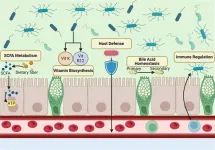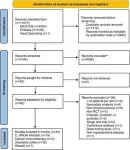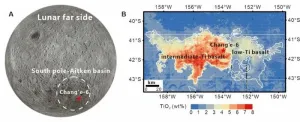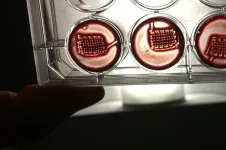(Press-News.org) The gut microbiome, an ecosystem of trillions of microorganisms in the human digestive tract, has been increasingly linked to chronic diseases. Research led by Dr. Connor Prosty and his team at McGill University consolidates recent findings that demonstrate a causal role for the gut microbiome in the progression of multiple diseases, ranging from gastrointestinal conditions to immune-related and psychiatric disorders. Published in eGastroenterology, this narrative review examines how manipulating the gut microbiome may open new therapeutic avenues.
The study draws on recent randomized controlled trials (RCTs) and preclinical evidence that reveal substantial advances in understanding how the gut microbiome affects human health. The most promising findings come from studies on Clostridioides difficile infection (CDI), where fecal microbiota transplantation (FMT)—a process involving the transfer of stool from a healthy donor into the gastrointestinal tract of a patient—has shown efficacy in significantly reducing infection recurrence rates. CDI, a severe bacterial infection often triggered by antibiotic use, remains difficult to treat due to its high relapse rate. FMT has emerged as a groundbreaking therapy, with studies showing that it can restore gut microbial balance and reduce recurrence rates by up to 93%.
In addition to CDI, the review highlights the potential role of microbiome-based interventions in cancer immunotherapy and ulcerative colitis (UC). Recent trials suggest that the composition of the gut microbiome may influence how well patients respond to immunotherapy, particularly in cancers such as melanoma and renal cell carcinoma. Findings indicate that individuals with specific gut microbiota profiles, including higher levels of Akkermansia muciniphila and Bifidobacterium, experience better outcomes when undergoing immunotherapy, likely due to the microbiome’s role in modulating immune responses. Supplementation with microbiome agents in cancer treatment may thus enhance the body’s natural ability to fight tumors.
In UC, a chronic inflammatory condition of the colon, FMT and other microbiome therapies have demonstrated potential as alternatives to conventional, often immunosuppressive treatments. Several trials reveal that FMT can improve symptoms, induce remission, and increase the gut microbial diversity of patients with UC, who typically have less diverse gut bacteria than healthy individuals. This evidence supports the potential of microbiome-altering therapies to modulate the immune response and reduce the need for prolonged use of corticosteroids and other immunosuppressive drugs.
Interestingly, the microbiome’s role in obesity is more complex. Although animal studies have shown that changes in gut bacteria can influence weight and metabolic health, RCTs in humans have so far been inconclusive. Trials testing microbiome therapies in patients with obesity and metabolic disorders have not demonstrated significant weight loss or changes in body mass index (BMI), suggesting that while the microbiome plays a role in metabolism, it may not act as a stand-alone solution for weight management.
The review also addresses the challenges and limitations in linking the microbiome to chronic diseases. Factors such as diet, age, and lifestyle contribute to microbiome variability, which can complicate causal analysis. Additionally, differences in microbiome profiles between animal models and humans make it challenging to apply findings directly to human populations. The team suggests that further research is needed to determine the best formulations, dosages, and delivery methods for microbiome therapies, as well as the long-term safety and efficacy of these treatments.
Despite these challenges, Dr. Prosty and his colleagues emphasize the transformative potential of microbiome-targeted therapies. “The gut microbiome is increasingly recognized not only as a biomarker but as a target for therapeutic intervention,” said Dr. Prosty. “These findings validate the microbiome’s role in disease development and pave the way for safe, non-invasive treatments that can enhance patient outcomes.”
With two FDA-approved microbiome therapies already on the market for CDI and multiple ongoing clinical trials exploring microbiome interventions for other conditions, the future of microbiome medicine is promising. Researchers are now focusing on optimizing treatments to ensure patient safety, exploring the impact of diet and lifestyle on microbiome health, and examining how personalized microbiome therapies can be developed to treat or even prevent chronic diseases.
This research positions the gut microbiome as a frontier in healthcare, providing a foundation for therapeutic innovation that could dramatically impact millions of lives worldwide.
See the article:
Prosty C, Katergi K, Papenburg J, et al. Causal role of the gut microbiome in certain
human diseases: a narrative review. eGastroenterology 2024;2:e100086. doi:10.1136/egastro-2024-100086
About eGastroenterology
eGastroenterology is a new, open-access, and open peer-reviewed BMJ Journal, which focuses on basic, clinical, translational, and evidence-based medicine research in all areas of gastroenterology (including hepatology, pancreatology, esophagology, and gastrointestinal surgery).
For more information, please visit: egastroenterology.bmj.com and follow us on Twitter (@eGastro_BMJ).
Sign-up to Email Alerts for eGastroenterology: https://emails.bmj.com/k/Bmj/jausu/egastroenterology
END
Family Heart Foundation Appoints Dr. Seth Baum as Chairman of the Board of Directors
Dr. Seth Baum, Florida Atlantic University, Named Chairman of the Family Heart Foundation’s Board of Directors
The Family Heart Foundation® is proud to announce the appointment of Dr. Seth Baum as the Board of Directors Chairman. An esteemed expert in preventive cardiology and lipidology, Dr. Baum has insights and extensive experience that will contribute to the Foundation’s strategic mission to increase awareness for lay public, expand screening for high-risk populations, improve understanding and education for healthcare teams, and promote ...
A new route to materials with complex ‘disordered’ magnetic properties at the quantum level has been produced by scientists for the first time.
The material, based on a framework of ruthenium, fulfils the requirements of the ‘Kitaev quantum spin liquid state’ - an elusive phenomenon that scientists have been trying to understand for decades.
Published in Nature Communications the study, by scientists at the University of Birmingham, offers an important step towards achieving and controlling quantum materials with sought-after new properties that do not follow ...
Basalt samples returned by the Chang’e-6 mission have revealed volcanic events on the lunar farside at 2.8 billion years ago (Ga) and 4.2 Ga, according to research conducted by Prof. LI Qiuli’s lab at the Institute of Geology and Geophysics of the Chinese Academy of Sciences. This work was recently published in Nature.
“Unraveling the volcanic history of the lunar farside is crucial for understanding the hemispheric dichotomy of the Moon,” said Prof. LI.
The asymmetry between the Moon’s nearside and farside—encompassing differences in basalt distribution, topography, crustal thickness, and thorium ...
The Moon has a global dichotomy, with its near and far sides having different geomorphology, topography, chemical composition, crustal thickness, and evidence of volcanism.
To better understand this dichotomy, Professor XU Yigang’s team from the Guangzhou Institute of Geochemistry of the Chinese Academy of Sciences investigated lunar soil samples from the far side South Pole-Aitken (SPA) Basin of the Moon returned by the Chang’e-6 mission.
Their work was published in Science on Nov. 15.
“The samples returned by Chang’e-6 provide a best opportunity to investigate the lunar global dichotomy,” said Professor ...
Dietary zinc deficiency promotes lung infection by Acinetobacter baumannii bacteria — a leading cause of ventilator-associated pneumonia, according to a new study published Nov. 15 in the journal Nature Microbiology.
A Vanderbilt University Medical Center-led team of researchers discovered an unexpected link between the pro-inflammatory cytokine interleukin-13 (IL-13) and A. baumannii lung infection, and they demonstrated that blocking IL-13 prevented infection-associated death in an animal model.
The findings suggest that anti-IL-13 antibodies, which are FDA-approved for use in humans, may protect against bacterial pneumonia in patients with zinc deficiency.
“To ...
In what could one day become a new treatment for epilepsy, researchers at UC San Francisco, UC Santa Cruz and UC Berkeley have used pulses of light to prevent seizure-like activity in neurons.
The researchers used brain tissue that had been removed from epilepsy patients as part of their treatment.
Eventually, they hope the technique will replace surgery to remove the brain tissue where seizures originate, providing a less invasive option for patients whose symptoms cannot be controlled with medication.
The ...
Children born to mothers who take antiseizure medications to manage seizures and psychiatric conditions during pregnancy may face increased risks of neurodevelopmental conditions, according to new data from researchers at Drexel’s Dornsife School of Public Health.
The current work -- using data from more than three million children from the United Kingdom and Sweden, including 17,495 who were exposed to antiseizure medications during pregnancy -- found that children exposed to the antiseizure drug lamotrigine ...
Bottom Line: In patients with unresectable, locally advanced esophageal cancer, the triple combination of radiation, chemotherapy, and immunotherapy made tumors more amenable to surgery, which was associated with significantly improved outcomes.
Journal in Which the Study was Published: Clinical Cancer Research, a journal of the American Association for Cancer Research.
Background: “Curative resection unequivocally serves as the cornerstone for treating resectable esophageal squamous cell carcinoma (ESCC); ...
Scientists have created a new ‘biocooperative’ material based on blood, which has shown to successfully repair bones, paving the way for personalised regenerative blood products that could be used as effective therapies to treat injury and disease.
Researchers from the Schools of Pharmacy and Chemical Engineering at the University of Nottingham have used peptide molecules that can guide key processes taking place during the natural healing of tissues to create living materials that enhance tissue regeneration. The research published today in Advanced ...
The New Phytologist Foundation is delighted to announce that Professor Maarja Öpik will take up the position of Editor-in-Chief of New Phytologist from January 2025 for an initial term of five years.
Maarja has served as a member of New Phytologist's editorial board since 2013 and is Professor of Molecular Ecology and Director of the Institute of Ecology and Earth Sciences at the Faculty of Science and Technology at the University of Tartu, Estonia.
Maarja’s research addresses the interactions between plants and mycorrhizal fungi, with ...






